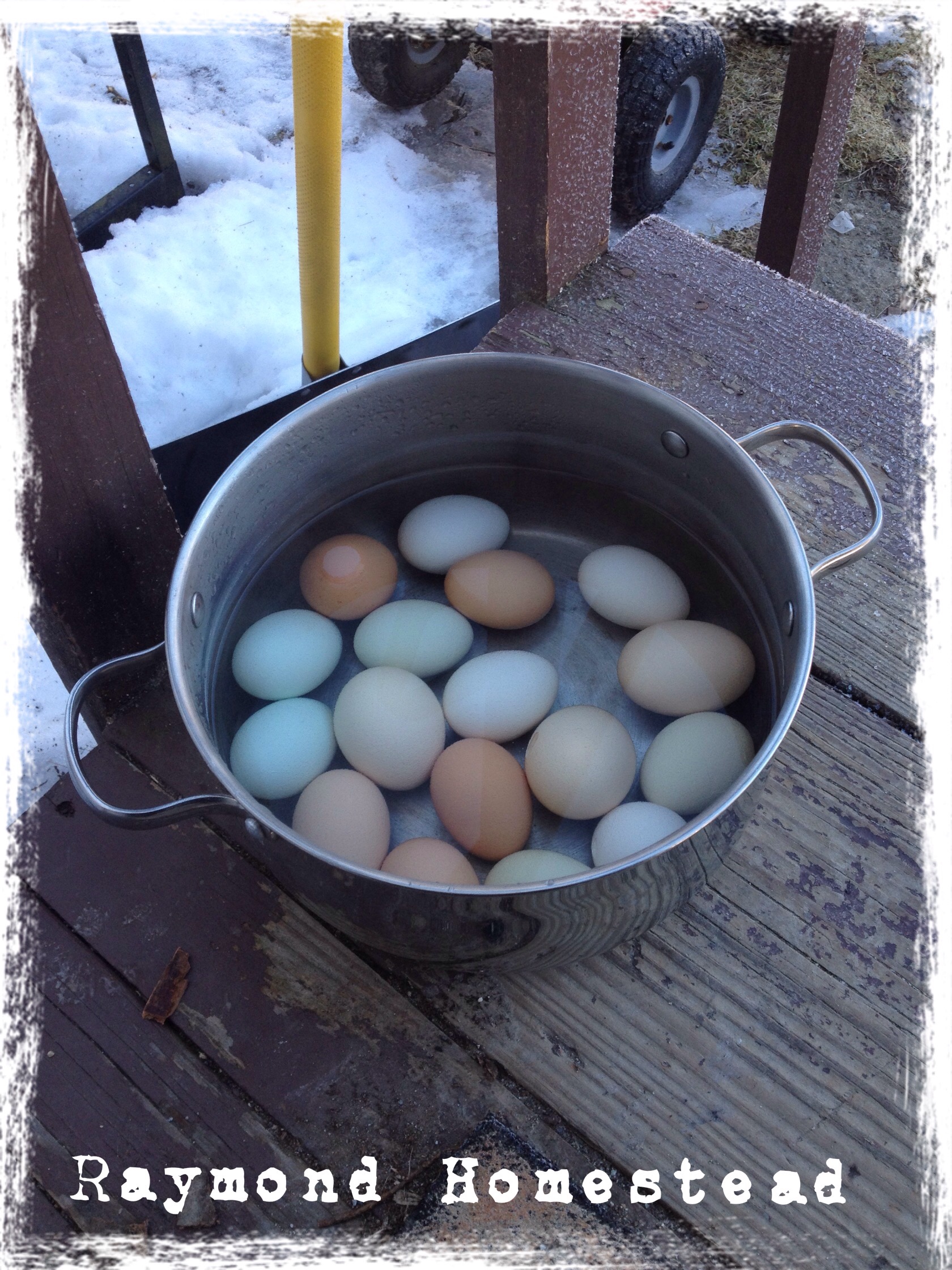
“Don’t try hard boiling them.”
“You can’t hard boil fresh eggs.”
“Fresh eggs need to sit at least a month before you can hard boil them”
My son’s favorite type of egg is hard boiled. Egg salad sandwiches are a staple in this house. Not to mention hard boiled eggs make a great baby toy (with supervision, of course).
I can’t help but chuckle when people tell me you can’t hard boil fresh eggs. I’ve never had an issue with hard boiling eggs. That might be because I was taught by my mom, who was taught by her mom, who….well, you get the idea. The point is that I didn’t learn how to boil eggs from a cook book but from family teaching one generation after the next, meaning I was taught how to boil fresh eggs without realizing it, where as recipe books teach how to boil store bought eggs that are at least a month old.
“Enough gabbing! How do you boil the damn eggs?”
1. This might seem a bit obvious, but make sure you look over and clean the eggs that you need to. Farm fresh eggs may have some chicken poop or shavings attached. It’s completely normal, but you don’t really want to be eating that.
2. Line the bottom of whatever pan you’re using with eggs and then fill two inches above the eggs with cold water. The water level is important. You’ll be boiling your eggs for a while and don’t want to have your pot run dry.
3. Turn the water to high and walk off, checking it ever my few minutes. Don’t sit there and wait for it. A watched pot never boils. ;-)
4. Once the water is at a rip-roarin’ boil, put the timer on for 10-15 minutes. Now WALK AWAY but stay in earshot of the timer. Yes, you keep the burner on high. Yes, I said 10-15 minutes.
5. When the timer goes off, check them. How do you know if their done? You’ll have one or two eggs with cracked shells. That’s your signal.
6. Drain the pot or move the eggs to another non-plastic container. The eggs are still hot and have the potential to melt plastic. Fill the container with enough cold water to cover the eggs.
7. Quick cool the eggs. This can be done multiple ways. You can keep draining and refreshing the container with cold water. I’ve had success putting the container in the freezer. Or, if it’s cold out – sub 40F – stick them, pot and all outside. I’ve also heard of old timers putting individual eggs in snowbanks. (I don’t recommend doing this with white eggs.)

To shell the eggs, I suggest using a spoon or other implement (I use my wedding ring) to tap around the shell until you find a spot where the shell easily cracks inward. That’s where an air pocket stationed itself while the eggs boiled. If you start shelling from this point, things go easier than if you randomly pick a spot. Another trick I’ve heard, but have never tried, is to add a teaspoon of baking soda to the water.
Enjoy those eggs and let me know how things work out!


